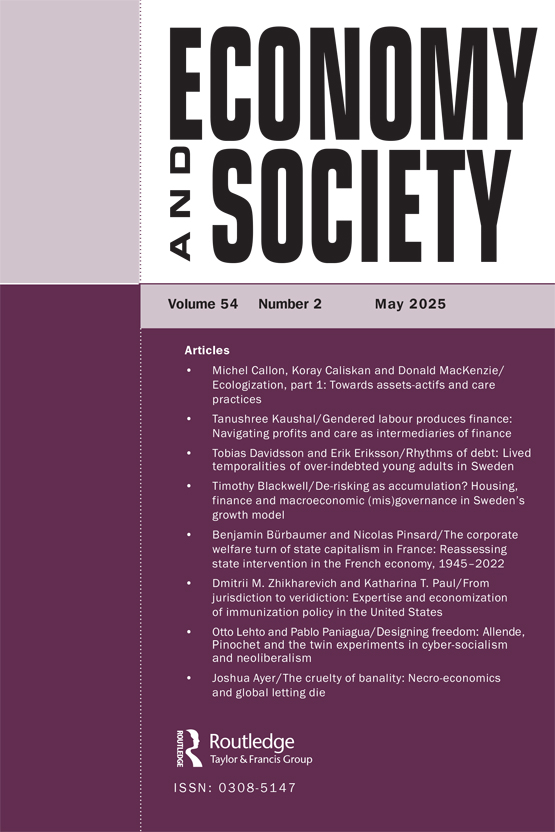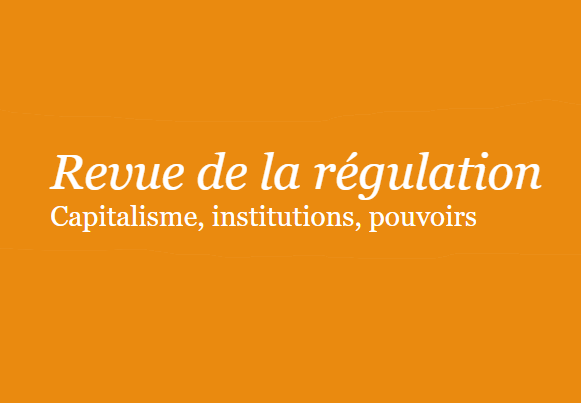
Nicolas Pinsard
- FACULTE DES LANGUES, CULTURE ET SOCIETES
Présentation
Dernier article
The corporate welfare turn of state capitalism in France: Reassessing state intervention in the French economy, 1945–2022
Abstract
In times of ‘whatever it takes’, COVID-19 stimulus packages and industrial policy, the literature on state intervention is burgeoning. While the new state capitalism debate mainly focuses on state-controlled capital and regulatory interventions, this paper’s long-run approach contributes to extending this strand of research to underdeveloped areas, namely public finances and monetary policy. The paper demonstrates that French state capitalism did not disappear with the demise of Fordism, but profoundly changed its shape. Using archives, statistics and grey literature, we demonstrate that since the 1990s it has consistently promoted corporate welfare: the state increasingly extracts revenue from households and unconditionally distributes it to corporations. Today, the latter enjoy unprecedented public funding amounting to a third of non-financial corporations’ investment. Combining regulationist and Marxist notions, we argue that this results from political accumulation in a context of a structural increase of capital’s bargaining power vis-à-vis the state, resulting from capital concentration, deregulation and heightened business unity.
Keywords: corporate welfare; subsidies; monetary policy; state capitalism; structural power; political accumulation
Récente publication
The absolutist origin of capitalism. Primitive accumulation and rent in France (14th–17th centuries)
This paper contributes to the literature on the transition from feudalism to capitalism in Western Europe, with a specific focus on the process of primitive accumulation during France’s absolutism, from the 14th to the 17th century. Drawing on Regulation Theory and Marxism and supported by archival research, the article aims to demonstrate that France and England followed different paths in their journey toward capitalism. Due to the premodern structure of the state and the process of political accumulation, a small fraction of the state bourgeoisie amassed wealth, facilitated by war and by levying taxes. Officeholders could thus extract surplus labour, primarily from the peasantry. The transition to an economy where markets became a compulsory stage for tax payment and the resurgence of the state established a regime of rent-exploitation and relationships of indirect, collective exploitation. In France, the state and public finances played a pivotal role in separating the peasantry from its land and means of production. This paper offers new insights into the role of absolutism in Marxist historiography. It argues that absolutism constitutes a distinct social formation from feudalism, paving the way for the transition to capitalism by proletarianizing a part of the French peasantry.
Keywords: primitive accumulation, absolutism, transition to capitalism, fiscal-financial regime, rent, state, France, Regulation Theory, Marxism







